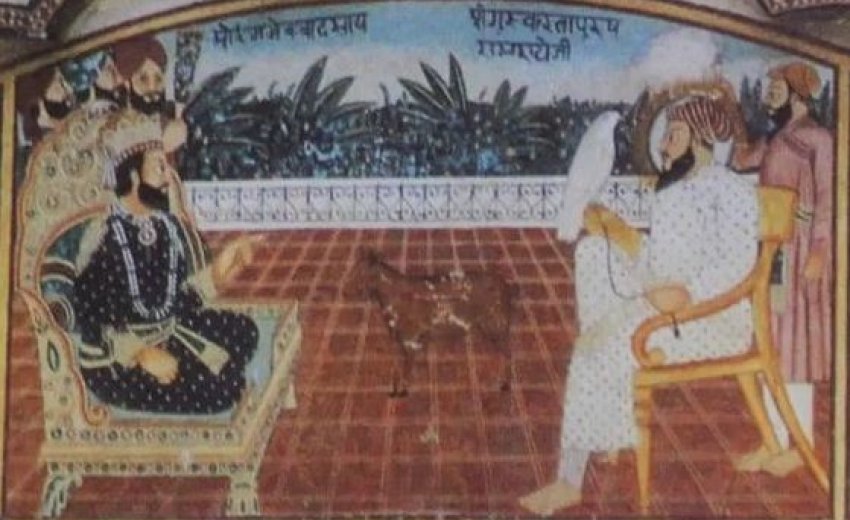Much like his grandfather, Guru Har Gobind Sahib Ji, Guru Har Rai Ji embodied the dual role of a saint and a soldier. He maintained a robust army consisting of 2,200 horsemen, prepared to defend when necessary. Despite his military preparedness, the Guru was known for his deep love for peace and his compassionate nature towards all.
The tale
Shah Jahan , the Emperor of Delhi had four sons. The eldest, Prince Dara Shikoh, was set to inherit the throne. However, his younger brother Aurangzeb was cunning. When Shah Jahan became ill, a conflict erupted among his sons over who would rule Delhi. Aurangzeb, using his wit, seized power by imprisoning his ailing father in Agra. He also defeated Prince Dara, who fled for safety. Dara found refuge in the Punjab, seeking shelter in the Guru's Camp.
Some Sikhs questioned whether it was wise to protect Dara, as it could provoke Aurangzeb's wrath. In response, Guru Har Rai explained that spiritual teachings dictate offering protection to those who seek it. The Guru's forces bravely confronted Aurangzeb's army, ensuring Dara's safety.
Aurangzeb remembered how the Guru had supported Dara, so when he became Emperor, he invited the Guru to Delhi. However, the Guru couldn't make it, so he sent his son, Ram Rai, instead. When Ram Rai met Aurangzeb, he was asked many questions about Sikhism, which he tried to answer as well as he could. Aurangzeb then wanted to make sure that the Holy Granth (the Sikh Bible) didn't contain anything against Islam. He asked Ram Rai to explain why Guru Nanak had said,
mittee musalamaan kee paerrai pee kumihaaar ||
The clay of the Muslim's grave becomes clay for the potter's wheel.
gharr bhaa(n)ddae eittaa keeaa jaladhee karae pukaar ||
Pots and bricks are fashioned from it, and it cries out as it burns.
Ram Rai pondered for a while before speaking, and then he said, "Your Majesty, Guru Nanak wrote 'Mitti Beiman Ki' that is 'The ashes of the faithless,' not 'of the Moslems' fall into the potter's clod. Some ignorant person seems to have copied wrongly from the original text. The scribe seems to have inserted 'Musalman' in place of 'Beiman.' This mischief has given a bad name not only to your religion but also to mine." The Emperor found Ram Rai's explanation very pleasing and was fully satisfied. He respectfully dismissed Ram Rai.
The Sikhs in Delhi told the Guru about the incident. They said Ram Rai altered the Granth's text and acted above Guru Nanak Dev ji, whose words should remain unchanged. Guru Har Rai ji, upon learning that his son Ram Rai changed the sacred text out of fear, was furious. The Guru believed Ram Rai couldn't handle pressure or grasp the text's true essence. This lack of strength and character led Guru Har Rai ji to conclude that Ram Rai wasn't fit to be a Guru. Consequently, he disowned him, declaring they would never meet again.
"The word of the Guru is inner music;
The word of the Guru is the highest scripture;
The word of the Guru is all pervading"
(Guru Granth Sahib)
"The Guru gives the word, and the word is the Guru;
All the sweetness of nectar is in the word.
The Guru's word instructs, and the Sikh follows it:
This is how the word leads to light."
(Guru Granth Sahib)
Consequently, Guru Har Rai nominated his younger son, Har Krishan, to succeed him as the leader of the Sikhs before his passing away on October 6, 1661.
*Based on an article published on 5th September 2013 in Tuhitu.blogspot
